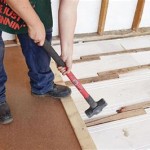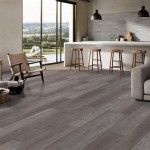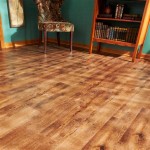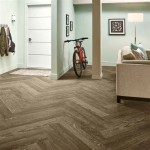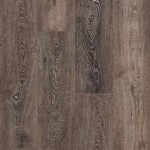Is Cork Flooring Good For Basements?
Cork flooring is a popular choice for homeowners because it is durable, easy to clean, and comfortable to walk on. It is also a good choice for basements because it is moisture-resistant and can help to insulate the space.
Here are some of the benefits of cork flooring for basements:
- Moisture-resistant: Cork is a naturally moisture-resistant material, making it a good choice for basements that are prone to flooding or high humidity.
- Insulating: Cork is a good insulator, which can help to keep basements warm in the winter and cool in the summer.
- Durable: Cork is a durable material that can withstand heavy foot traffic and wear and tear.
- Easy to clean: Cork flooring is easy to clean and maintain. Simply sweep or vacuum the floor regularly and mop it with a damp mop as needed.
- Comfortable to walk on: Cork flooring is soft and comfortable to walk on, making it a good choice for areas where you will be spending a lot of time on your feet.
There are also some disadvantages to cork flooring for basements:
- Cost: Cork flooring is more expensive than some other types of flooring, such as vinyl or laminate.
- Can be difficult to install: Cork flooring can be difficult to install, especially if you are not experienced in DIY projects.
- Not as durable as some other types of flooring: Cork flooring is not as durable as some other types of flooring, such as tile or hardwood.
Overall, cork flooring is a good choice for basements if you are looking for a durable, moisture-resistant, and comfortable flooring option. However, it is important to be aware of the potential disadvantages of cork flooring before making a decision.
Here are some additional factors to consider when choosing cork flooring for your basement:
- The type of cork flooring: There are two main types of cork flooring: solid cork and engineered cork. Solid cork is made from a single piece of cork, while engineered cork is made from a combination of cork and other materials. Engineered cork is more durable and moisture-resistant than solid cork, but it is also more expensive.
- The thickness of the cork flooring: The thicker the cork flooring, the more durable it will be. However, thicker cork flooring is also more expensive.
- The finish of the cork flooring: Cork flooring can be finished with a variety of different finishes, including wax, polyurethane, and lacquer. The type of finish you choose will affect the durability and appearance of the floor.
By considering all of these factors, you can choose the best cork flooring for your basement and enjoy the benefits of this unique and beautiful flooring option.

White Bamboo 1 2 Inch 12mm Cork Floating Flooring

Best Basement Flooring The Warmest Floor Covering Is Cork

How I Saved Over 700 On Cork Flooring For The Basement

Basement Cork Flooring Pros Cons Best Brands Home

7 Reasons You Should Consider Cork Flooring For Basements

Cork Flooring In Basements

Best Basement Flooring The Warmest Floor Covering Is Cork

How I Saved Over 700 On Cork Flooring For The Basement

Cork Flooring Pros And Cons Is It The Right Choice For You

Green Basement Renovation Adding Under A Home Greenbuildingadvisor
See Also
